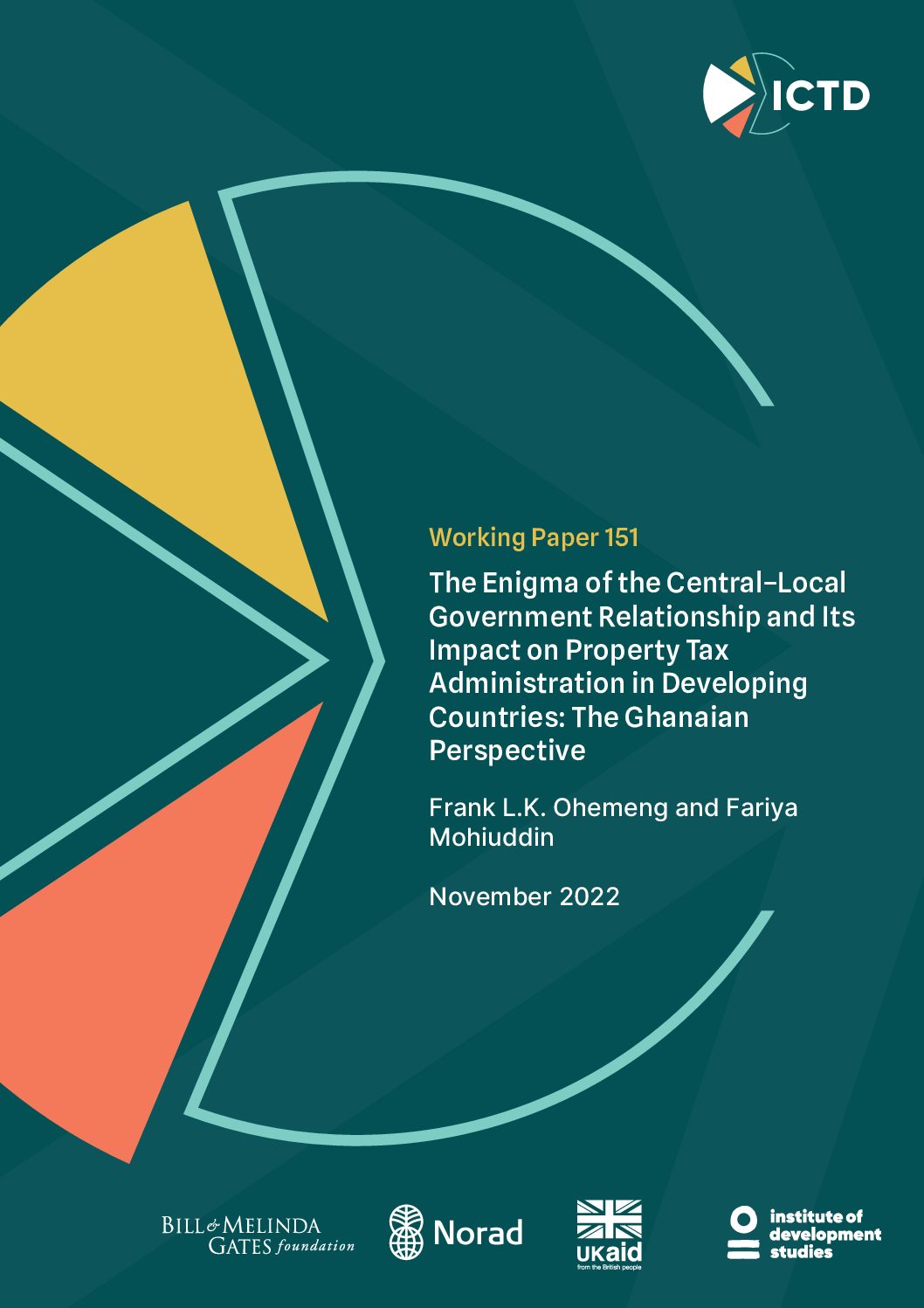Working Paper 151
Property tax administration is the bedrock for effective revenue mobilisation, development, and good local governance for local governments. Yet administering property taxation continues to be a major problem, especially for many developing countries. Scholarly explanations for this poor state of affairs have focused on limited capacity, poor quality local cadastres, corruption, and local political resistance to effective property tax administration, among others. This paper moves away from these explanations to focus on a less trodden area: the relationship between central and local government and how this relationship affects property tax administration. Property tax administration involves some collaboration and overlap between different levels of government, and thus depends very much on a good and functional relationship between both levels of government, especially when local governments derive their authorities from the largesse of central governments. This relationship may have powerful implications for the ability of local governments to effectively undertake property tax administration due to the central government’s policies and politics. Using Ghana as a case study, the paper illustrates how a dysfunctional relationship between central and local governments has undermined, and continues to undermine, effective property tax administration in the country, which should serve as a lesson for other developing countries.
